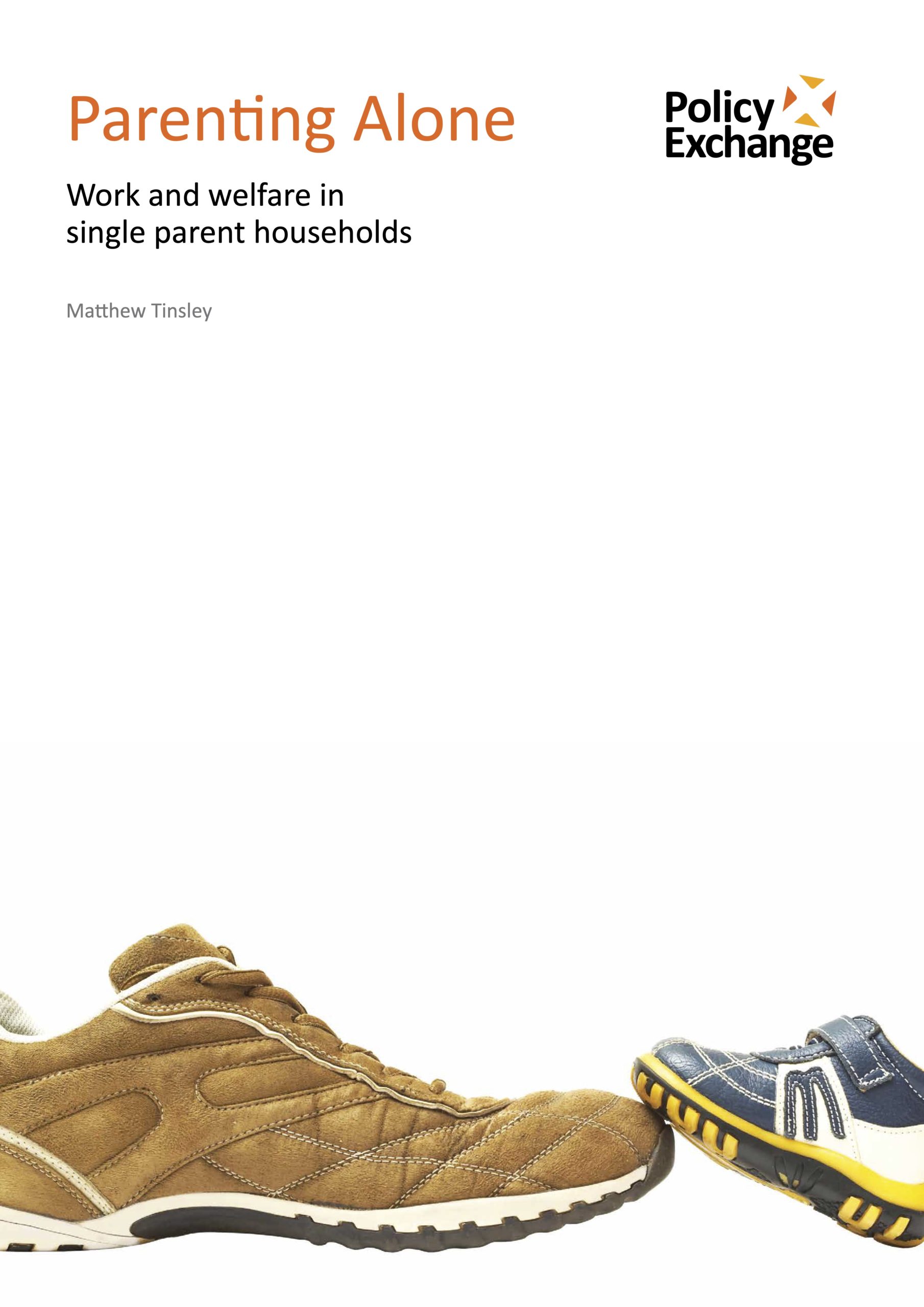
Parenting Alone: Work and welfare in single parent households
Of the 1.8 million single parent households in the UK, 650,000 – more than 1 in 3 – are not in any sort of work, with the average single parent household claiming twice as much in benefit support as the average two parent household.
Parenting Alone: Work and welfare in single parent households says that the proportion of lone parent households UK is the fourth highest in the EU – trailing only Estonia, Latvia and Ireland. It urges policymakers to target support at helping young, single parents find work as part of any plans to find further savings in the welfare budget.
The report found:
- The level of unemployed single parents can partly be attributed to when they had children. Over half (52%) of lone mothers who had their first child as a teenager (16-19) are not in work or looking for work, compared to 40% who had their first child aged 20-23 year olds, 29% of those who had their first child aged 24-29 and 19% who had their first child in their early thirties.
- Skills levels also matter, given the large number of lone parents who had children young and now have low levels of qualifications. Whilst 84% of lone parents who have left education and have degrees are in work, only 54% who left education without any qualifications above GCSE level and 26% who left with no qualifications are in work.
However, despite the continued problem faced by single parents who had children young and therefore often have low levels of education, there has been an increase in the number of single parents in work compared to the 1990s, partly due to employment support and stronger job search requirements introduced by the previous government, and the increase in part time work.
Other findings include:
- Single parents tend to have fewer children than married couples. In 2012, 57% of lone parents only had one child compared to 41% of couples.
- Single parents with children under 5 who are not in work are twice as likely to have a second child compared to those in work.
- The most common age single parents have their first child is 20 compared to couples who are together who most often have their first child at 30.
- While the number of teenage pregnancies has fallen by a third between 1998 and 2011, the UK still has one of the highest rates in the developed world.
- The number of women aged 20-24 giving birth has fallen by 40% since 1981.
Recently the Coalition government announced that lone parents claiming Income Support would be expected to engage with training in return for the available childcare allowances when their youngest child is aged 3 or 4. However, this report shows that more support is needed to support many lone parents with young children into work and reduce the burden that high worklessness has on the state.
This paper therefore recommends:
- Alongside the necessary conditions that lone parent claimants of Income Support prepare for work before their children start school, the government should pilot offering more intensive training support when their youngest child is 3 and 4 years of age. This would offer Jobcentres up to £1,000 per lone parent to provide specialist advice and training, with assessment of any savings this has this has on employment and benefit claims.
- For up to 12 months after they find work or until their child turns 5, single parents with a 3 or 4 year old who have been out of work since their youngest child was born should be able to retain a portion of the reduction in benefit spending which comes if they find a job with at least 16 hours per week.
- So that progression in work is not penalised, selected employed lone parents claiming in-work benefits who have not seen their income rise in recent years should have the opportunity to receive a bonus taken out of their benefit reduction if they progress onto more well paid work, with this bonus paid in a lump sum after one year.
Supplementary paper
Since 2008 the government have introduced reforms which mean that many lone parents claiming Income Support were expected to look for work in return for their benefits as they were moved onto Jobseeker’s Allowance. The gradual nature of these reforms mean that we were able to isolate the effects that it had on employment as every new group of lone parents claiming Income Support were affected by this conditionality. This supplementary paper by Paul Garaud outlines the background to the research, the methodology used and the estimated effects that these lone parent obligations had on employment.


